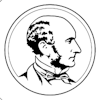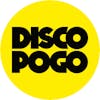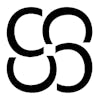Popular projects this month
Steady Growth Newsletter | EN
Unlock all the secrets of digital media monetization. Tips, tricks and news, in your inbox once a month.
New European People's Forum
Promoting democracy and human rights in Europe
Friends of New Europeans UK
Europe is more than just the EU and what unites us is our shared values. Let's come together and celebrate our new European identity.
Songwriting Magazine
Subscribe to one of the world's leading publications dedicated to the craft of writing music and lyrics, and enjoy exclusive benefits.
All projects
Showing 149 results
Steady Growth Newsletter | EN
Unlock all the secrets of digital media monetization. Tips, tricks and news, in your inbox once a month.
New European People's Forum
Promoting democracy and human rights in Europe
Songwriting Magazine
Subscribe to one of the world's leading publications dedicated to the craft of writing music and lyrics, and enjoy exclusive benefits.
Friends of New Europeans UK
Europe is more than just the EU and what unites us is our shared values. Let's come together and celebrate our new European identity.
The Quietus
tQ is Europe’s leading online music magazine & the authoritative voice on the modern counterculture.
BRICKS magazine
Welcome to the BRICKS Learner Platform, dedicated to supporting emerging creatives access and navigate the industry.
Black History Buff
Learn Black History through social media posts, podcasts, and newsletters. Her-Story, His-Story, Our-Stories, Unhidden.
Polyester Zine
Polyester is a self published, intersectional feminist publication aiming to bridge the gap of URL cyber-feminism with the IRL world.
Support social affairs journalism – subscribe to VIEWdigital
Independent social affairs journalism produced in partnership with community campaigners and experts.
Crafts
Join us as we shape the future of making.











